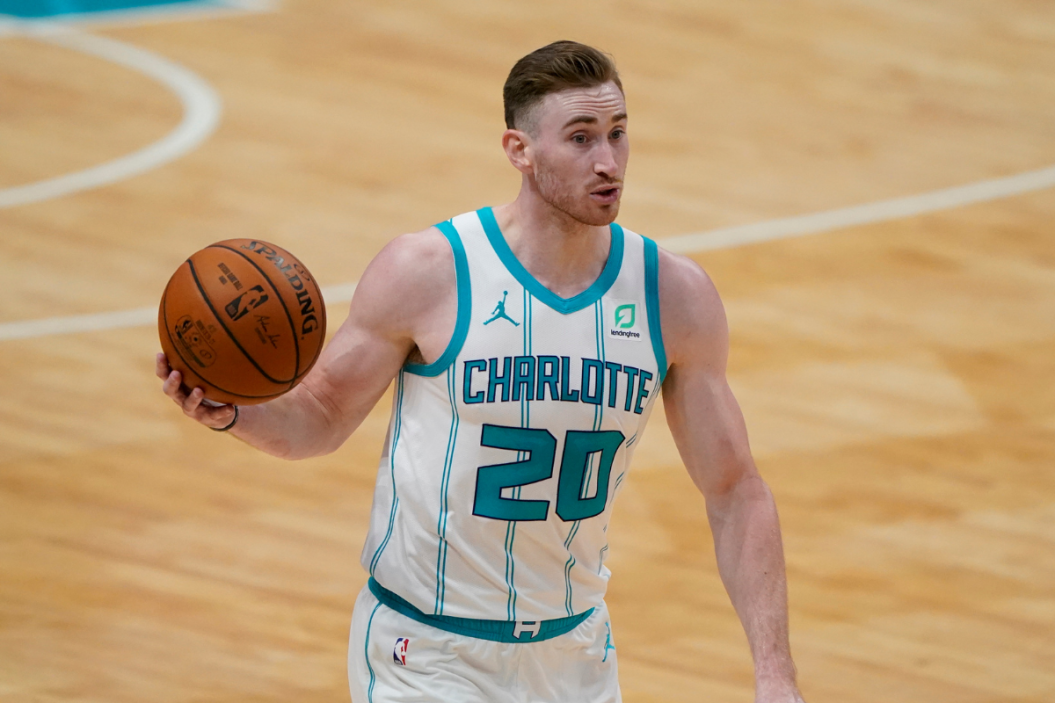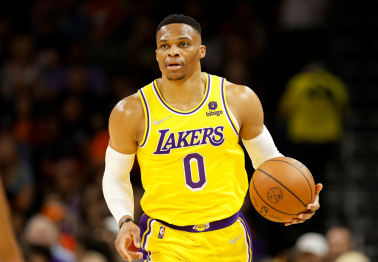Gordon Hayward walked away from $34.2 million this offseason.
It was an awkward split that embodied his three-year tenure with the Boston Celtics.
Minutes into his Celtics debut, Hayward went down with a gruesome ankle injury that ended his season. The 2017 All-Star never quite became the player Boston signed to a four-year, $128 million deal after that.
There's no one to blame here. Like an ex-significant other, the freak injury made things real too fast and the spark that was once there fizzled. (Please return my calls, Jamie. I swear I've changed.)
So when Hayward declined his player option and signed a four-year, $120 million contract with the Charlotte Hornets, the pair officially called it quits.
Gordon Hayward Charlotte Hornets
RELATED: What Are Bird Rights in the NBA?
The sign-and-trade sent Hayward and second-round draft picks in 2023 and 2024 to Charlotte for a conditional 2022 second-round pick. Boston only receives the pick if the Hornets finish in the top five in the league next season, according to ESPN.
The transaction creates a $28.5 million trade exception for Boston, meaning they can receive players in trades without needing to send out salary to match. The exception is the largest in NBA history.
In his last season with the Celtics, Hayward, Kemba Walker, Jayson Tatum, and Jaylen Brown fell to Jimmy Butler and the Miami Heat in the Eastern Conference Finals in the Orlando bubble.
The 6-foot-7 small forward has some history with Charlotte. As a restricted free agent in 2014, the Hornets offered a four-year, $63 million deal. The Utah Jazz, Hayward's incumbent team, matched the offer sheet and re-signed him.
The two revisited six years later and landed on $30 million per year. Did the Hornets organization commit too much?
Yes and no. The Hornets probably paid over market value to acquire the 30-year-old Hayward, but the motive is reasonable. Charlotte isn't a top free agency destination like Miami or Los Angeles. When there's a shot at landing an All-Star caliber player, you have to shoot it if you're the Hornets.
Hayward isn't the sexiest name. He is a playmaker and veteran presence who can mentor potential franchise cornerstone LaMelo Ball. Grouped with a core of young players such as Ball, Devonte Graham, Terry Rozier, Miles Bridges, and P.J. Washington, the Hornets have some juice.
That being said, Michael Jordan's franchise won't be sniffing the postseason. The Milwaukee Bucks, Miami Heat, Brooklyn Nets, Celtics, Philadelphia 76ers, Toronto Raptors, and Indiana Pacers occupy the Eastern Conference's top spots while the Atlanta Hawks should make a jump.
The front office of Jordan and general manager Mitch Kupchak have been condemned for their roster management in the past. They waived forward Nicolas Batum, who signed a five-year, $120 million contract in 2016, to make cap space for Hayward. (That cap spike in 2016 really got everyone paid, huh?) Batum's remaining contract will be on Charlotte's books the next three seasons in $9 million dead cap increments.
The Hayward signing won't move the needle much in terms of wins or playoff implications. The addition of Ball — the third overall pick in the 2020 NBA Draft — will attract viewers, and Hayward gives them a better shot to do something than live at the bottom of the conference with the New York Knicks.
In his first preseason showing against the Toronto Raptors, Hayward recorded 11 points, 4 rebounds, and 2 assists in 19 minutes. Charlotte's first game of the regular season is December 23 against the Cleveland Cavaliers. The Hornets finished 23-42 last year in the pandemic shortened season.

